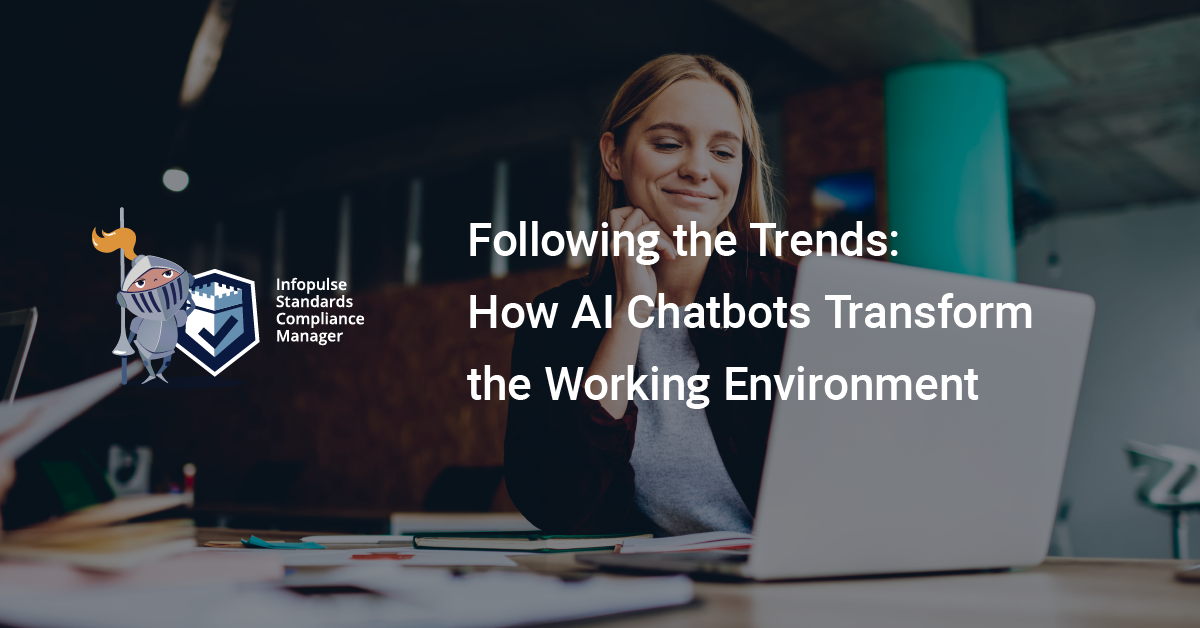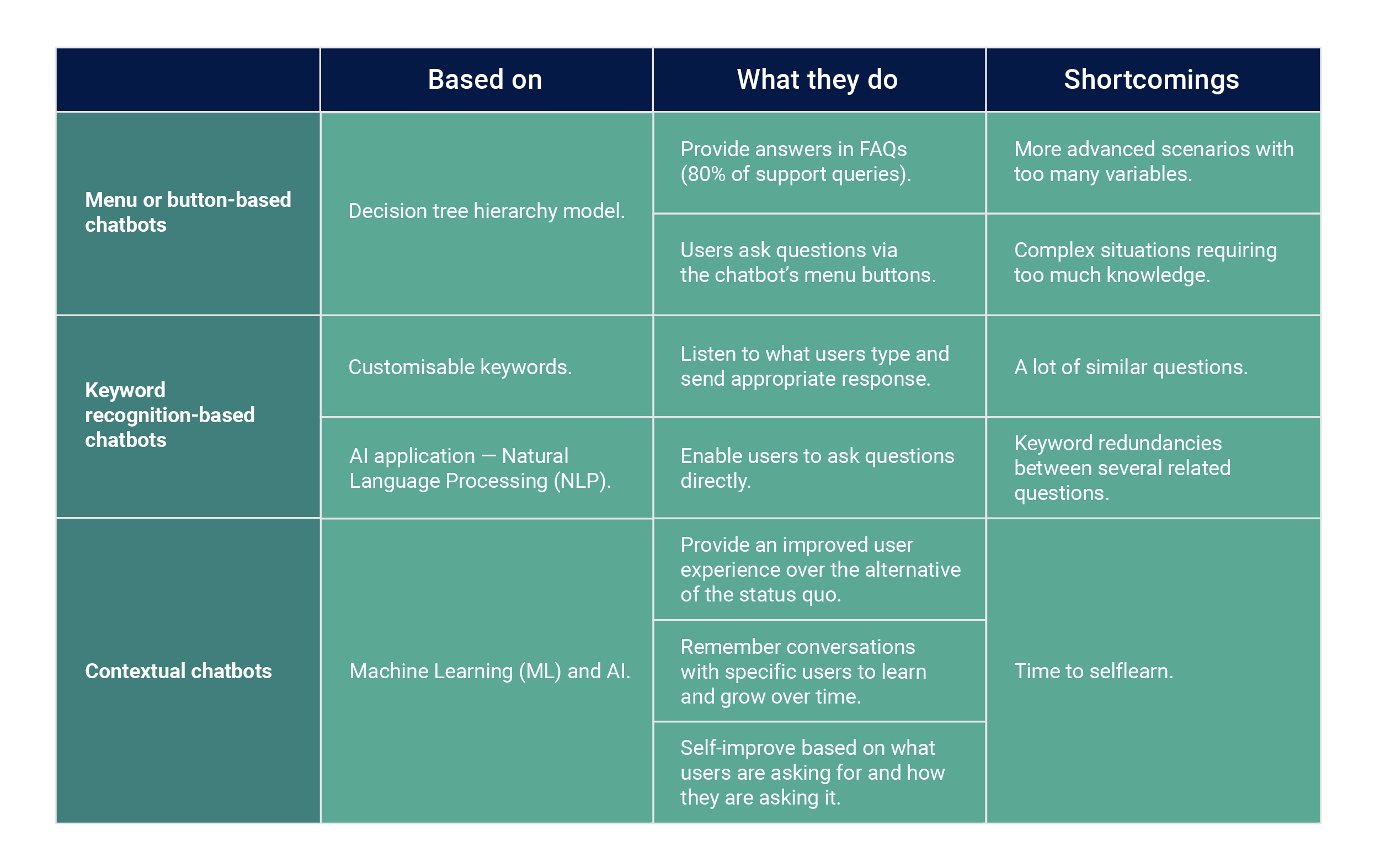Following the Trends: How AI Chatbots Transform the Working Environment

A successful business is looking for continuous improvement. Consequently, company management seeks ways to increase profits, reduce operational costs and errors, and gain immense superiority in a competitive environment. Striving to integrate tech innovation in their processes, organizations try to target smart work driven by things like mobile supercomputing and artificial intelligence. Being just one component of the AI environment, chatbots are appearing at a rapid pace throughout various industries. They are transforming the way businesses communicate with their customers, augment human productivity, and render anytime support.
Let’s check out the types and specific benefits of the best AI chatbots and focus on how companies can profit considering their various spheres of implementation.
AI Chatbot Statistics: Trends Supported by Demand
The ultimate goal of any AI chatbot is to improve user experience, gain customer insights into and automate processes where possible. Here what chatbots will enable you to do:
- Enhance customer service. Surveys show that nearly 83% of online buyers need assistance during their consumer journey.
- Save time and costs. Implementing an AI chatbot is faster and cheaper than hiring employees. Chatbots allow companies to manage consumer interactions at once without extra expenditures.
- Get customer feedback. Companies can use chatbots to gather information from consumer feedback and use that data to analyze how you can improve their services and products.
- Automate repetitive tasks. With chatbots you can eliminate some of the routine operations and allow employees to focus on more essential tasks. Additionally, the accuracy of chatbots can reduce human errors.
What is the Future of Chatbots: 80% of Automation by 2030
Virtual talk AI chatbots have gone mainstream across various spheres and in all directions, including social media channels, messaging apps, websites, products, and other platforms. One of the main goals of the companies using chatbots is to reduce customer service work time.
By 2030, 80% of routine operations will be handled without human interaction. Meanwhile, in the banking industry alone, it is expected that 90% of customer interaction will be automated by 2022.
- Over 50% of businesses plan to spend more on chatbots than on mobile apps by 2021.
- Chatbots can reduce operational costs by up to 30 per cent.
- The introduction of chatbots will save 2.5 billion customer service hours in the coming years.
- In customer service across the retail, banking, and healthcare sectors, chatbots can cut costs to $11 billion annually by 2023.
How customers feel about chatbots:
- 64% of users say 24-hour service is the best feature of chatbots.
- 37% of people use a customer service bot to get a quick answer in an emergency.
- Nearly 60% of millennials already talk to AI chatbots regularly to buy basic goods.
- 90% of users are more likely to deal with companies that answer immediately.
Types of Chatbots and Their Application
Basically, chatbots can be divided into two major types: those that learn and those that don’t.

Depending on the sphere of implementation, there are the following types of bots:
- Booking- or appointment scheduling bots are linked to Google calendar and help customers book slots for appointments.
- Entertainment bots include TV show guides, quiz or riddle bots, etc.
- Marketing and sales AI chatbots are used to personalize the customer experience, increase engagement capacity, and reach a wider audience. They can analyze customer feedback, data, send relevant notifications, and move customers seamlessly through the sales funnel.
- Customer support AI chatbots perform all tasks a customer support representative would do, e.g. monitor customer feedback, or instantly answer questions allowing you to gain customer loyalty.
Further we will describe the real use case of this type of chatbot.
Use Case: Compliance Assistant Chatbot “Helga”
To enhance compliance-around operations in the advanced GRC solution – the Infopulse Standards Compliance Manager, in 2020, we have introduced a compliance bot “Helga” helping to automate parts of daily operational compliance routine. Since that time Helga has grown into an AI and ML empowered assistant which is able to answer domain-specific questions, e.g., GDPR, provide guidance during onboarding, and many more.
24/7 hour availability of the AI compliance chatbot “Helga”, quick and easy utilization, instant replies and live chat options make SCM user experience smoother and better.
Final word
Chatbots are transforming the way businesses operate by the elimination of repetitive work and related errors, and reduction of costs and human interaction. Implementation of AI chatbots in all industries fosters sales & lead generation, marketing engagement, customer support, and boosts brand awareness. Chatbots are the reason why user expectations are going through the roof and are expected to become smarter and more widespread across industries in the coming years. If you are considering starting a chatbot introduction into your business, contact us to talk about your individual chatbot development project.
Try Compliance Aspekte For Free
Book a 1-2-1 Live Demo and Obtain a 3-months Non-binding Trial
